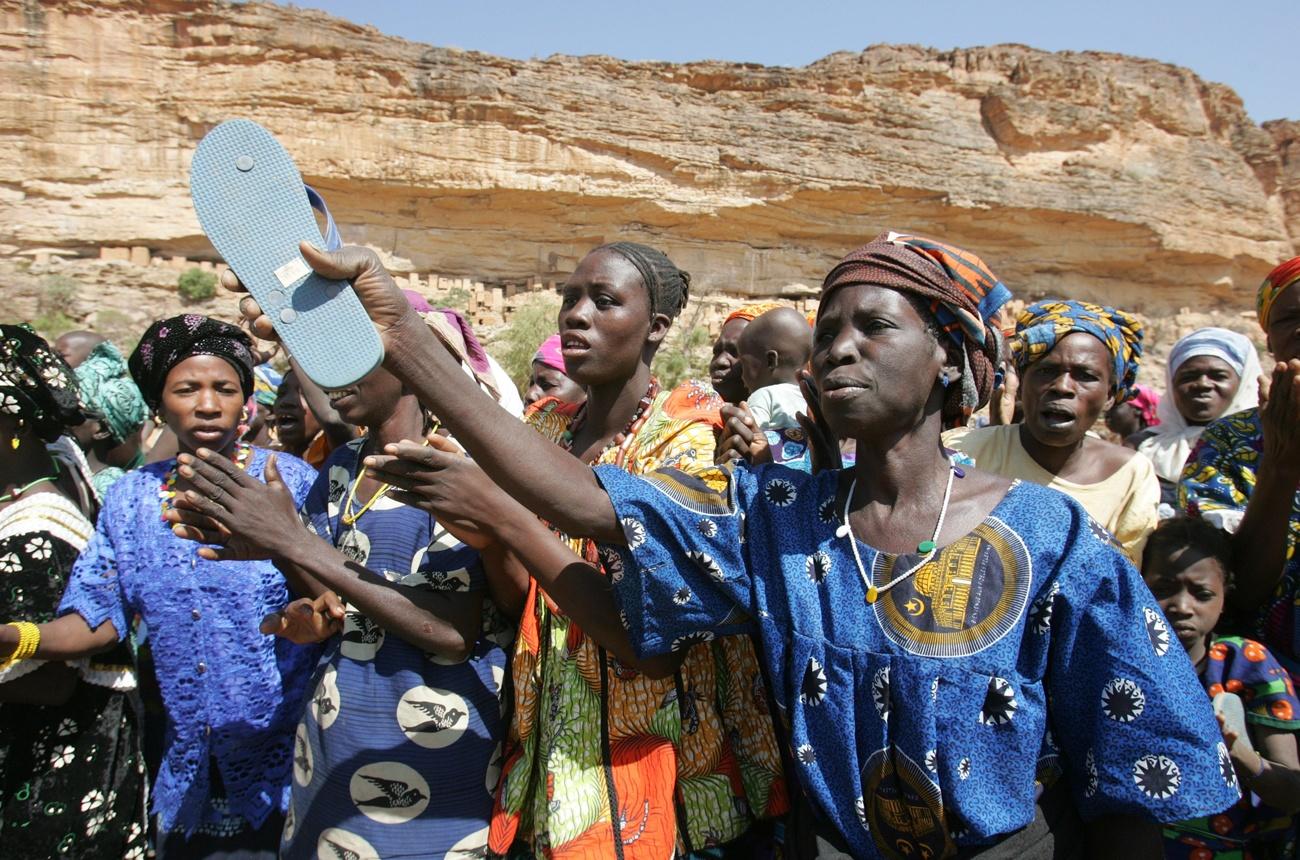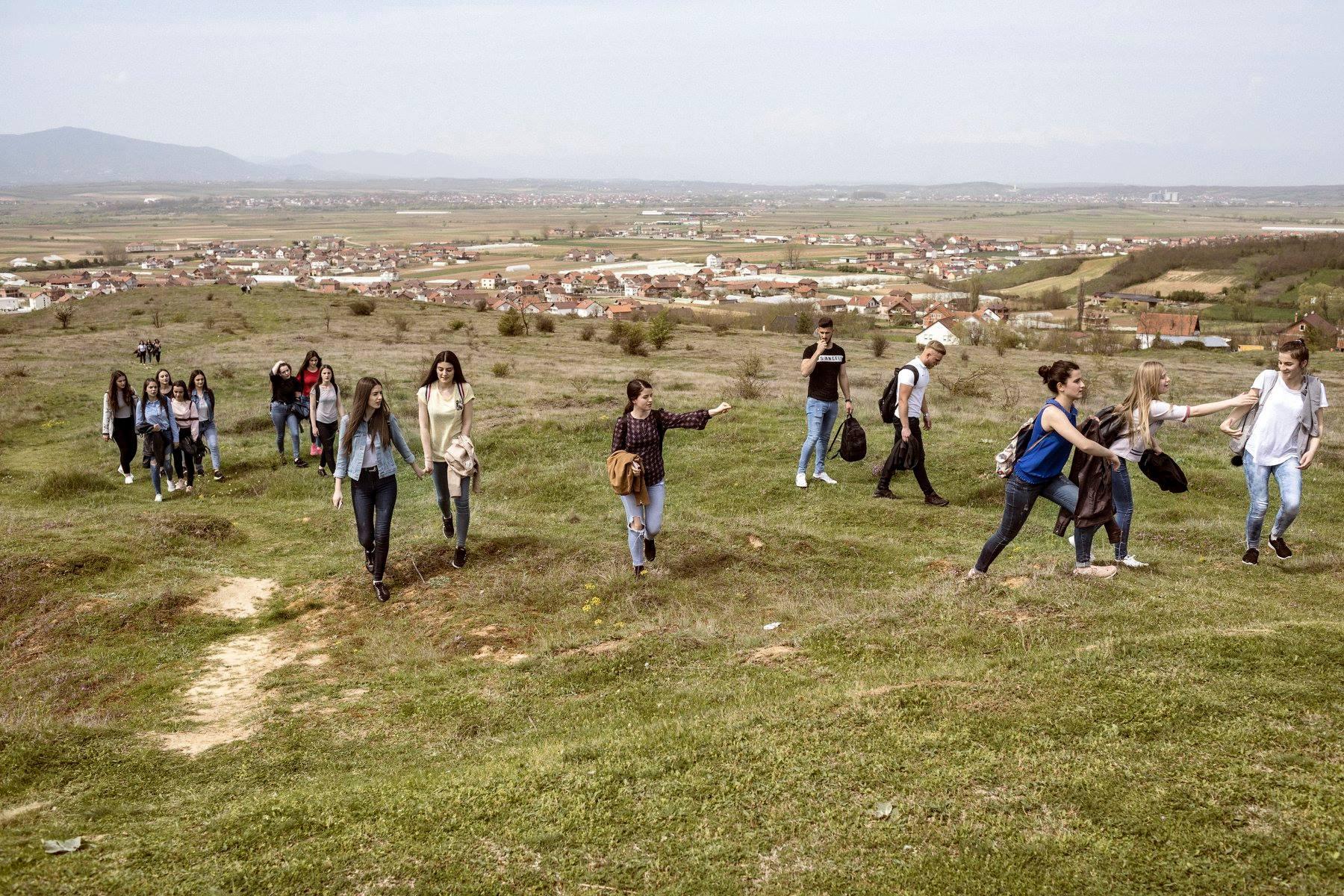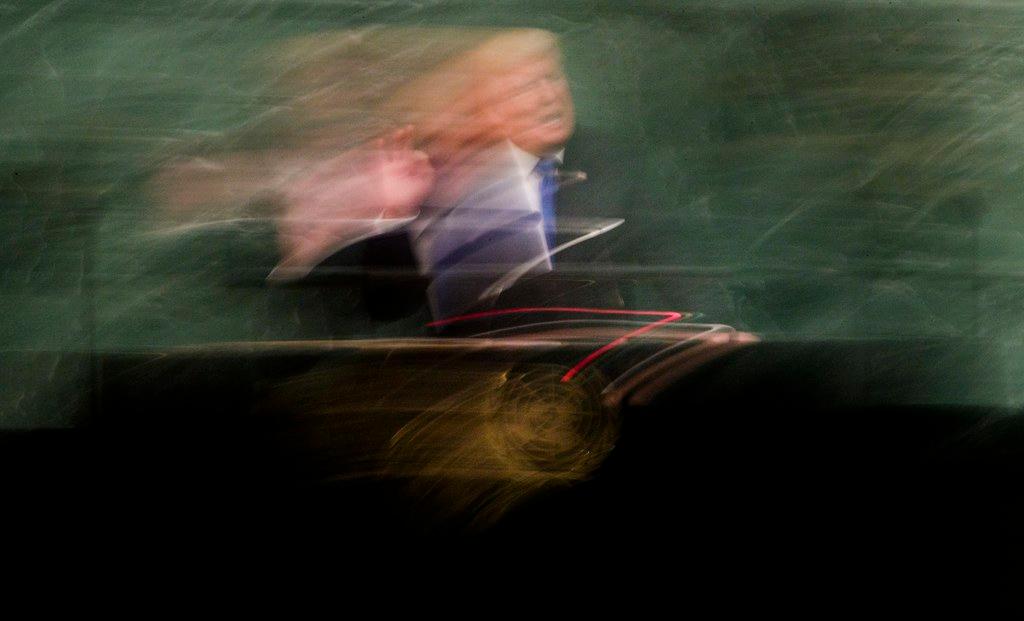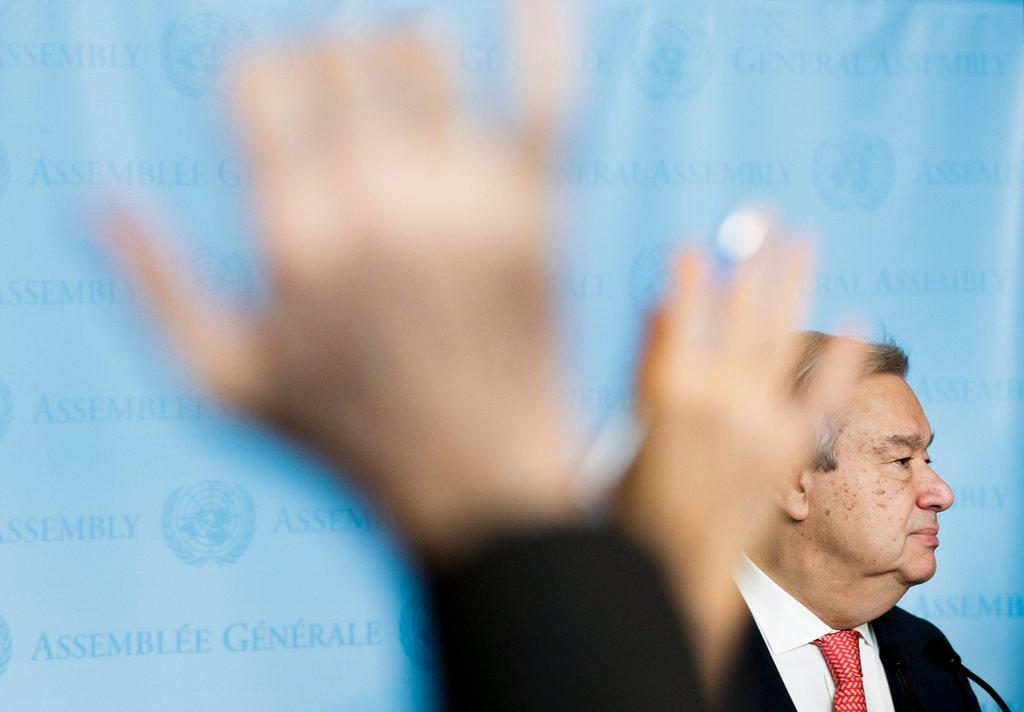The uncertain future of UN peacekeepers

United Nations member states are increasingly reticent to finance peacekeeping operations or to hand over promised contributions on time, which jeopardises multi-billion-dollar missions around the world.
At the end of 2018, the UN peacekeepingExternal link budget ($6.7 billion) had a financial deficit of $1.4 billion (CHF1.4 billion). The issue is currently being discussed at the Fifth CommitteeExternal link, the UN body in New York responsible for its budget.
UN Secretary-General António Guterres warned the committee on June 5External link that several peacekeeping missions were seriously underfunded and that the current financial crisis was preventing the UN from reimbursing troop- and police-contributing countries – mostly low-income countries – in a predictable and timely manner, hindering their ability to provide much needed security.
Last year, Switzerland gave CHF106.1 million to the UNExternal link. This represented 1% of the UN peacekeeping budget (CHF77.4 million) and 1.1% of the UN regular budget (CHF27.7 million). The small alpine nation also provides 28 peacekeeping personnel – five police officers, 16 military experts, two soldiers and four staff officers for missions in the Western Sahara, Mali, Democratic Republic of the Congo, South Sudan, Kashmir and in the Middle East, according to UN dataExternal link.
Over 90% of troop- and police-contributing countries are in Africa, Asia and Latin America, whilst most of the bad payers are western countries.
“The responsibilities are unequally shared between poorer countries, which supply most of the troops, and western countries, which finance the missions, established by the closed UN Security Council circle of nations,” explained Lucile MaertensExternal link, professor of international relations at the University of Lausanne.
The UN runs 14 peacekeeping missions worldwideExternal link. Drawing over 105,000 troops, police and other personnel from countries around the world, the peacekeeping missions operate in places from Haiti to parts of India and Pakistan. Most are in African countries. The top troop contributing countries are Ethiopia, India, Bangladesh, Nepal and Rwanda.
The UN says its peacekeeping operations ($6.7 billion) cost less than 1% of world military expenditures, estimated at $1.82 trillion in 2018.
Mali
According to the Jeune AfriqueExternal link weekly magazine, since 2010, five of the deadliest UN peacekeeping missions have been in Africa. Since 2013, 153 officers have been killed on the MINUSMAExternal link mission in Mali.
“The MINUSMA mission was created following a UN Security Council resolution in April 2013 with a mandate based on the security and protection of civilians. It has never managed to end insecurity which has spread in the centre of Mali,” Jeune Afrique wrote in its June 6 edition.
Three days after the article was published a new massacre took place in the centre of Mali, in which an armed group killed 35 villagersExternal link at Sobanou-Kou.
In a briefing to the UN Security Council on June 12External link, the head of the MINUSMA mission, Mahamat Saleh Annadif, painted a more positive picture. He said that amid ongoing violence, a critical phase of the peace process had now been reached which provided opportunities for real progress in the next six to 12 months.
Maertens says the difficulties MINUSMA face are basic. How can peacekeeping missions continue when a conflict is going on?
“In this theatre of operations, peacekeepers rub shoulders with the those involved in the conflict [the French army and joint G5 Sahel force], which are involved in counter-terrorism operations. The boundary between these two mandates becomes blurred,” she commented.
Legally, UN peacekeeping operationsExternal link can only be deployed with the agreement of all parties to a conflict.
“But who represents the interests of local populations in a state which has an unstable government?” asked the researcher.
This is something encountered in most armed conflicts, especially in Africa, where seven of the 14 UN peacekeeping operations are deployed.
The flaws in the system
Maertens noted: “It is often the countries that are the least well-equipped to deal with a peace mission politically that actually have to implement them, without any control over their budget or mandate.”
China’s permanent representative to the UN, Ma Zhaoxu, pointed this out at the UN Security Council last month in New YorkExternal link. “The international community must pay attention to the real needs of troops-contributing countries, in particular, those of developing countries, enhance capacity building in the area of peacekeeping and ensure the availability of targeted training and resources.”
China is the only major power to pay for UN peacekeeping operations (2nd biggest contributor) while at the same time contributing large numbers of peacekeepers (11th biggest supplier of troops). Meanwhile, the United States – the biggest contributor – owes hundreds of millions of dollars. The US, which announced in December that it was unilaterally cutting its share of the UN peacekeeping budget from 28.5% to 25%, has been looking to reduce the size and cost of many missions.
Last summer, the UN General Assembly cut the UN peacekeeping budget for the July 2018-June 2019 period by 1.47% to $6.7 billion. This mainly affected UN missions in South Sudan, DRC, Central African Republic and Mali.
The decision was hailed at the time by US Ambassador to the UN Nikki Haley.
“The new UN peacekeeping budget is a responsible reduction in spending,” she said. “The world needs a UN that is disciplined, efficient, accountable, and results-driven.”
Maertens is doubtful: “The UN is essential as the only universal arena for the promotion of international peace and security. But does it still have enough resources to intervene in conflict situations? Does it still have the symbolic resources, the political capital, the legitimacy to do so, while there is a mistrust of multilateralism?”
Translated from French by Simon Bradley

In compliance with the JTI standards
More: SWI swissinfo.ch certified by the Journalism Trust Initiative












You can find an overview of ongoing debates with our journalists here . Please join us!
If you want to start a conversation about a topic raised in this article or want to report factual errors, email us at english@swissinfo.ch.